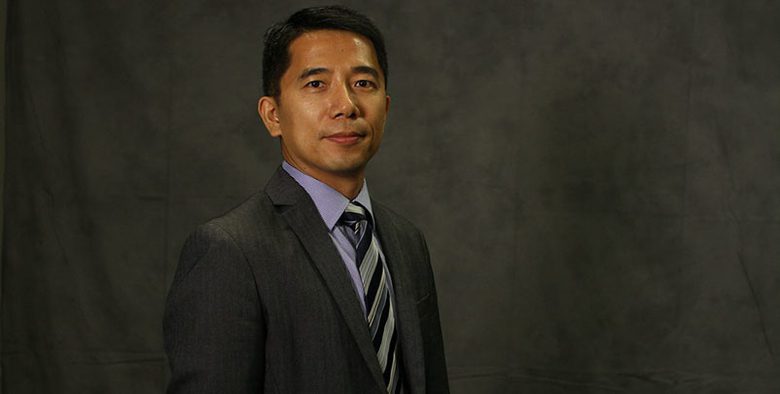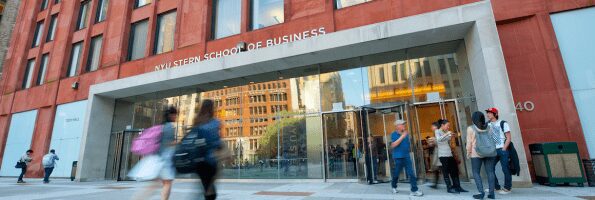Energy Conservation, Healthcare Struggles, and More – New York News

Let’s explore some of the most interesting stories that have emerged from New York business schools this week.
Do as Your Neighbor Does? Neighbors Caring about the Environment Makes You More Likely to Conserve – Columbia Business School
When it comes to interpersonal decisions, group elements often become a heavy factor, including with conservation.
Columbia Business School Professor Adam Galinsky recently co-authored a new study in Nature Human Behaviour that may offer insight into how to affect meaningful changes toward climate conservation.
By focusing on “second-order normative beliefs,” the researchers illuminate that when it comes to topics like energy conservation, for instance, “what people believe their community members care about is an important predictor of individual conservation behavior, above and beyond people’s own beliefs about energy conservation.”
Galinsky explains, “The evidence shows that policymakers can’t simply ask people to reduce, reuse, and recycle. In fact, trying to reach people with subsidies for environmentally-friendly decision-making can backfire. Instead, the roadmap to improving perceptions of conservation starts with reminding individuals that their neighbors care about it. It’s important to shift the focus from trying to change what people believe to reinforcing what their friends believe.”
You can learn more about the research here.
Faculty Snapshot: Finding a Remedy for Health Care’s Struggles – Rutgers Business School News
The Rutgers Business School recently profiled Assistant Professor of Supply Chain Management and Program Director for the Masters of Science in Healthcare Services Management, Xin (David) Ding, whose research studies “potential ways to increase hospital revenues through process coordination, patient involvement, and the cultivation of a patient safety environment.”

Professor Xin (David) Ding / Photo via business.rutgers.edu
The recent profile in Rutgers Business School News reads:
“While physicians and nurses traditionally have been trained to take care of clinical needs from patients, they don’t necessarily know how to manage operations and businesses well. With the transition from volume-based care to value-based care, supply chain concepts can help care providers maximize value through the optimization of their resource allocations.”
You can read more from the profile here.
In the Future, Everyone Will Be Able to Make Robots – Stevens Institute of Technology SOB News
The Stevens Institute of Technology President’s Distinguished Lecture Series recently hosted prominent robotics and AI researcher Daniela Rus who “challenged the audience to rethink conventional notions of robots.”
“Imagine the limitless possibilities that could arise from the ability to create the machines that can help save lives, improve the quality of life, or transport us to places we cannot go to on our own,” she notes.
“Right now we have the ability to use our technologies, coupled with interesting interfaces, to enable much more extensive capabilities. And while, today, we can begin to use natural language to program machines, how far can we go in connecting us directly to the machine?”
You can learn more about Rus’ research here.
Working in Healthcare? Rutgers Dishes New Advice – New York News

Let’s explore some of the most interesting stories that have emerged from New York business schools this week.
Working In Healthcare? Here’s How to Stay Relevant – Rutgers Business School News
The Rutgers Business School recently shared five reasons its Masters in Healthcare Services Management is the “answer for professionals … who want to up their game with analytic skills, leadership development and business knowledge.”
- Analytical skills are a necessity: “Data provides critical insights needed to inform better decision-making and improve operational efficiencies.”
- It’s all about delivering value: Stay “up-to-date about changes in health care and…value-based practices that ensure quality services.”
- Empowered to bring about change: “Students learn what it takes to change practices, make operational improvements, and be effective leaders.”
- It’s not as hard as you think: “Many courses can be taken online to supplement time in the classroom. And students are able to waive up to six credits for eligible work experience.”
- Hands-on learning: “Students in the program are required to complete a capstone project that gives them a chance to work with a real healthcare provider on an actual problem.”
You can read more from the recent RBS article here.
Answering the Call for AT&T: Interns’ Insights Add Value at Company’s Indian Operations – Stevens Institute of Technology School of Business News
The Stevens Institute of Technology SOB blog recently highlighted some positive accolades from AT&T Business’s senior VP of Service Excellence Paul Rosenbaum, specifically regarding the company’s longstanding history with Stevens.
Rosenbaum expressed his pleasure with the Business Intelligence & Analytics students who interned at the company’s office in Hyderabad, India this past summer. “We know the quality of the students, and many of our executives are Stevens alumni. My team in India and my team in the U.S. were really impressed with these students’ capabilities,” he says.
He explains that because “Stevens business students are bilingual in business and analytics [they are] well suited to leading technical teams.”

Five Stevens School of Business interns, alongside several colleagues and AT&T employees, from the company’s Hyderabad office / Photo via stevens.edu
Of the experience in Hyderabad, Sanjay Pattanayak, ’18, writes, “This is the first place I’ve worked where equal opportunity is given to individuals to bring ideas to the table or suggest solutions, rather than just top-down leadership.”
“Having that independence, and being encouraged to put your ideas into action, enables the development of you as an individual and strengthens the organization.”
You can read more about the school’s program and Rosenbaum’s observations here.
Lehigh Announces New Philly Focus for Flex MBA – MetroMBA
Next Spring, Lehigh’s Flex MBA program will unveil two non-degree courses developed by the MBA Test Drive Program for prospective students at the school’s Center City Philadelphia location (1800 JFK Blvd).
“From Plan to Action: Strategy and Organization” will investigate “business model development in today’s competitive environment as well as the use of disruptive innovation in strategy development” while “From Private to Public Company: A Path to Exit” will survey the “considerations involved” in taking a company public.
You can learn more about the new Lehigh Flex MBA course offerings here.
A Stevens’ Therapy Startup for Trauma Victims, and More – New York City News

Let’s explore some of the most interesting stories that have emerged from New York business schools this week.
Mobile Treatment Tools Can Change Way People Recover from Trauma – Stevens Institute of Technology SOB News
The Stevens Institute of Technology School of Business recently profiled Mira Therapeutics, a new homegrown startup that uses tech to “help patients manage their symptoms, and give therapists powerful new treatment tools.”
Co-founded by Stevens students CJ Internicola, Seth Kirschner, Gregory Mercado, Nicholas Gattuso, and Annika Roll, the startup’s interactive Mira mobile app “guides patients through crises like flashbacks, anxiety attacks, and dissociation using clinically-established grounding techniques.
Specially designed for veterans, sexual assault survivors, police officers, medical providers, and many other people living with trauma, Mira also records progress by “automatically tracking symptoms and suggesting daily journal prompts.”
Internicola writes, “There are thousands of mobile apps on the market that improve mental health. We are creating technology that addresses problems unique to people living with PTSD. Mira is positioned to become a holistic improvement in the way people recover and grow from trauma.”
“We want to create technology that improves everyday life, translates into better therapy sessions, and ultimately, ameliorates suffering.”
You can find out more about the therapy startup here.
Democratizing Finance and the Unexpected Future of Fintech – Gabelli Connect
PayPal CEO Dan Schulman recently visited the Gabelli School of Business to share his insights about fintech at an event co-sponsored by the Gabelli Center for Global Security Analysis titled “Democratizing Finance: Expanding Access Through Fintech.”
Schulman told the audience, “We have a mission, which is democratizing financial services. It’s very inclusive [and it’s] about all citizens having access to the digital economy…probably the most important value for us is inclusion and diversity. Because if we have a mission that includes all citizens, we need to represent that as a company.”
Center for Financial Services Innovation president and CEO Jennifer Tescher used the event as an opportunity to talk about diversity in fintech—or lack thereof.
“I would say that, why don’t we have more women anywhere? I think it’s a particular challenge in the world of engineering, which cuts across any tech. Why don’t we have more women in financial services, forget about fintech. I think it’s a huge problem.”
You can find out more about the recent event here.
Summit Explores Future of Selling in a Digital World – Rutgers Business School News
As part of a summit that focused on “the future of selling in the digital world,” the Rutgers Business School recently hosted two panels comprised of a diverse array of sales executives:
Panel #1
- Phil Cohn, Senior Vice President of U.S. Sales for Samsung
- Jeff Clachko, Senior Vice President for NBC Sports Ad Sales
- Gary Carleton, President of Sales-Healthcare for UPS
- Tolga Akcura, Co-Founder of eBrandValue
- Joel Silverman, Executive Vice President and General Manager of Synchronoss Technologies
Panel #2
- Rita Fawcett, Vice President of Cardiovascular Sales for Bristol-Myers Squibb
- Frank Palumbo, Senior Vice of Cisco’s Global Date Center Sale
- Rahsan-Rashan Lindsay, Executive Vice President, TV One
- Jim Sterbenz, Senior Vice President of U.S. Sales at Campbell Soup
The first panel “delved into the role of analytics, metrics and customer relationship management for sales professionals” while the second panel focused on the “challenges and opportunities in sales as a result of technology.”
The keynote speaker was Cocoa Exchange President John Wycoff who extolled the virtues of the growing gig economy, which forecasts to have 7.7 million workers by 2020 due in large part to the growth of digital sales tools.
You can find out more about the recent event here.
Research Awards, Hackathons, Leadership, and More – New York City News

Let’s explore some of the most interesting stories that have emerged from New York business schools this week.
Four Executives Share the Essence of Leadership – Rutgers Business Blog
Citrin Cooperman partner Michael Napolitano moderated a discussion at this year’s Rutgers Business School CEO Evolution event between the following four executives:
- CEO and Angel Investor Braun Kiess
- MZM Construction and Management Owner and CEO Marjorie Perry
- Villa Restaurant Group President Biagio Scotto
- Yesterday’s Business Computers Cwner and CEO Tom Tsivgas
CEO Evolution is an annual platform for leaders to “inspire others in the business community.” This year’s guest speakers offered insights into their “challenges, mistakes, ambitions, individual strategies, and leadership styles.
Kiess talked about “what the next wave of college graduates will be looking for in their careers.”
“They don’t want to be just a cog in the wheel. They expect more from an employer than just a paycheck.”
You can read more from Rutgers Business News here.
Eyes on the Prize: Business, A.I. Skills Help Stevens Team’s Eye Health Entry Win Hackathon – Stevens Institute of Technology School of Business Blog
Stevens Institute of Technology School of Business’ Niraj Chaurasia, Medhavi Uniyal, and Vidya Sagar Polaki took home first prize at a one-day iCIMS hackathon last month, as well as prizes in Best Hack for Good and Best Use of A.I./Machine Learning, for a model that accurately “taught itself whether it was looking at a healthy or sick eye 90 percent of the time.”
The team used machine-learning techniques to build a “data set of healthy eyes, as well as eyes with various health problems, such as cataracts and glaucoma.”
Polaki explains that he hopes the team’s model might significantly reduce ophthalmology expenses and assist eye doctors in identifying eye problems.
“It costs, on average, $180 for an eye checkup in the U.S. So this would be a major cost savings. And when you visit the doctor, you have the data in hand, so you can be confident, have the right questions to ask and understand what remedy is available.”
You can learn more about the event here.
Economics Professor Receives Bright Ideas Research Award – Stillman School of Business News
Seton Hall University Stillman School of Business Professor of Economics Kurt Rotthoff received the Bright Ideas Award, which acknowledges faculty members “whose research significantly advances knowledge in their discipline area and delivers relevant findings to business practitioners.”
Rotthoff’s Journal of Sports Economics publication Structural Breaks in the Game: The Case of Major League Baseball, “analyzed nearly 150 years’ worth of Major League Baseball data [to] identify two significant eras: the free-swinging era, initiated by Babe Ruth, and the recent steroid era, marked by the increase of consistency in offensive power plays.”
Rotthoff explains:
“The research was exciting because it’s a method of measuring the performance of baseball players over time. Using batting statistics and some time-series statistical techniques, we determined certain points in the history of the sport that changed the entire game.”
You can learn more about Rotthoff’s research and award here.
NYU Stern Director of Admissions Answers 5 Questions

In our latest installment of the MetroMBA “5 Questions” series, we speak with Lauren Calio, Director of MBA Admissions at NYU Stern. She was kind enough to respond to our questions and share insight into what it’s like to attend Stern for an MBA.
1. How would you describe the culture of NYU Stern? Is it more collaborative or competitive?
“The culture at NYU Stern is absolutely collaborative. So much so that “Collaborative Community” is one of our four core values. We believe that collective efforts lead to greater success both inside and beyond the classroom. As an example, we often hear stories of students helping their classmates prepare to interview for roles that they themselves are also interviewing for. If they are not hired for a role, they want another Sternie to get that position. Another one of our core values is ‘IQ + EQ.’ Because we seek exceptional individuals with not only intellectual strengths but also high emotional intelligence, a collaborative spirit and desire to drive change together is ingrained in our student body, faculty, and administrators.”
2. What type of student is the best fit for NYU Stern’s MBA program?
“Students come to Stern with a passion for the School and experience from a wide range of industries and functions, and they aspire to land in a variety of post-MBA roles. Some are career switchers, others are not. Regardless of their experience or career goals, applicants should be able to highlight and quantify their accomplishments and clearly explain to the Admissions Committee their career goals and how they plan to achieve them. Beyond work experience and goals, a common thread among our students is their high emotional intelligence or EQ, and engagement in our collaborative community. We also pride ourselves on being a school where everyone can be themselves. Our students’ interests outside of the classroom are also vast, as evidenced by our 30+ student clubs serving professional, affinity, sports, and special interest areas.”
YOU MAY ALSO LIKE: GMAT Scores, International Students Jump at NYU Stern
3. If there was just one piece of advice you could give to an MBA applicant considering NYU Stern, what would it be?
“Connect with the Stern community. Get to know our community and our culture by speaking to current students, alumni, and the admissions team; attend a class visit; explore campus by coming for a tour and information session. This will help you picture yourself at Stern. If you are not able to make it to New York, you can connect with our current students virtually. They can share their experiences and provide an honest perspective on how their time at Stern has helped them grow both personally and professionally.”

“If you are not able to make it to New York, you can connect with our current students virtually. They can share their experiences and provide an honest perspective on how their time at Stern has helped them grow both personally and professionally.”
4. How accessible are NYU Stern professors? Do they frequently serve as mentors?
“Stern professors are very accessible. We have over 300 faculty members across industries, which means that students can connect with faculty in the areas they are passionate about. Faculty members are available to students and are often involved with projects and experiential learning opportunities, what we call Stern Solutions, working alongside students. Our faculty include top researchers, four Nobel laureates, and senior business leaders, some of whom are working in industry by day. My advice to students is to take advantage of this accessibility to build relationships while you are at Stern that will extend beyond your time here. Make your professors a part of your network.”
5. Where can you get the best NYC pizza near campus and where’s the best coffee shop for studying?
“These questions come up frequently in our office, and every person has a different answer. Being in the heart of NYC, we are surrounded by an abundance of pizza places and coffee shops. One of my favorite places to sit and get a pie is Numero 28. Their pizzas come in different sizes (up to 29”!), and you can mix and match toppings. Kopi Kopi is a cute coffee shop on West 3rd Street, right near campus.”
Telecommuting and the Gig Economy, and More – New York City News

Let’s explore some of the most interesting stories that have emerged from New York business schools this week.
The Changing Workplace – Lehigh College of Business and Economics News
The Lehigh College of Business and Economics recently published an overview of the impact that telecommuting continues to have on the future of work—and the surging gig economy.
“With email, instant messaging, smartphones, Skype for Business, Webex, and other connecting technologies, more and more companies are allowing their employees to work from home—even if home is a thousand miles from the corporate headquarters.”
Case in point: Vermont Department of Economic Development’s recent announcement that it would give $10,000 cash to anyone who wanted to move to the Green Mountain State and work remotely.
Ride-hailing services Uber and Lyft, as well as platforms like Upwork, which connect organizations and freelancers, depend on the flexible schedules of side-hustlers and entrepreneurs alike.
Lehigh Associate Professor of Management Naomi Rothman writes, “Being able to work from home for periods of time to care for children could enable more women to stay in the workforce and advance. If we have these issues of women not being able to make it to the upper echelons of corporate America, part of that reason is they are having work/life-balance issues.”
She adds, “Flexibility is one of the most important and critical solutions in helping dual-career families. In families in which you have two professions with both parents working, issues of child care become a fundamental problem. Flexibility is one thing that parents say allows them to keep their careers on track.”
Lehigh Professor of Management Andrew Ward predicts that the larger economy will more closely resemble the structure of the motion picture industry.
“When a movie is [green lit] by a studio, they bring together hundreds, even thousands, of workers—from the director and stars to the gaffers and the gofers—to make the movie. Once the film is done, they all move on to other projects. Some continue to work together on various projects, sometimes at the same studio, but many do not.”
You can read the full Lehigh College of Business and Economics News article here.
Consulting Challenge Win Leads to Hubble Contacts Concept Trial – Gabelli Connect
The Fordham University Gabelli School of Business recently published an overview of a recent student collaboration with Hubble Contacts’ co-CEO and co-founder Jesse Horwitz and Director of Internal Operations Barbara Almeida, MBA ’17.
Hubble Contacts, a “direct-to-consumer online marketplace for contact lens subscriptions,” is interested in finding new ways to reach consumers and increase revenue.
Joanne Ball, MBA ’20, and her team of students (Andrew Clark, Oliver Flynn, Sandeep Jacob, and Jessica Nebbeling) devised a campus pop-up shop that “would offer free eye exams and a student discount … to allow them to create a physical presence for their online DTC brand and also engage their target at a younger age segment.”
You can read the full piece from Gabelli Connect here.
Binghamton University Unveils New Master of Science in Data Analytics Program – Binghamton SOM Blog
Binghamton SOM announced a new 1-year, 30-credit Master of Science in Data Analytics (MSDA), the result of a cross-disciplinary partnership with Thomas J. Watson School of Engineering and Applied Science and the Harpur College of Arts and Sciences.
The MSDA, which qualifies as a STEM degree, will give students a “comprehensive foundation in data analytics, while also giving them confidence in the analytical, quantitative, technical and leadership skills needed for successful careers in data analysis.”
MSDA Program Director and Binghamton SOM Professor of Marketing Manoj Agarwal writes, “With three schools behind the curriculum of the program, we believe a multidisciplinary approach will produce successful, multidisciplinary graduates who can face the unstructured data challenges of the future.”
The first MSDA cohort is due to kick off July 2019.
Click here to find out more about the Binghamton 30-credit Master of Science in Data Analytics program.
